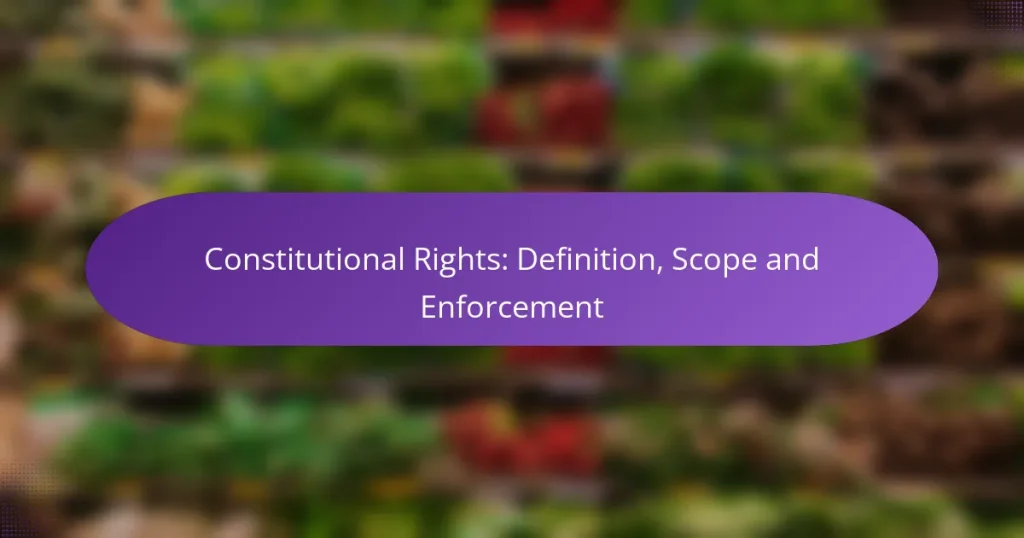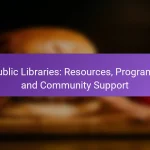Constitutional rights in the United States serve as fundamental protections for individual freedoms, primarily outlined in the Bill of Rights. These rights are upheld through a collaborative effort among the judiciary, legislative bodies, and executive agencies, ensuring compliance with constitutional mandates. However, the enforcement of these rights often encounters challenges such as judicial interpretation variability and political influences, which can affect their effectiveness and protection.
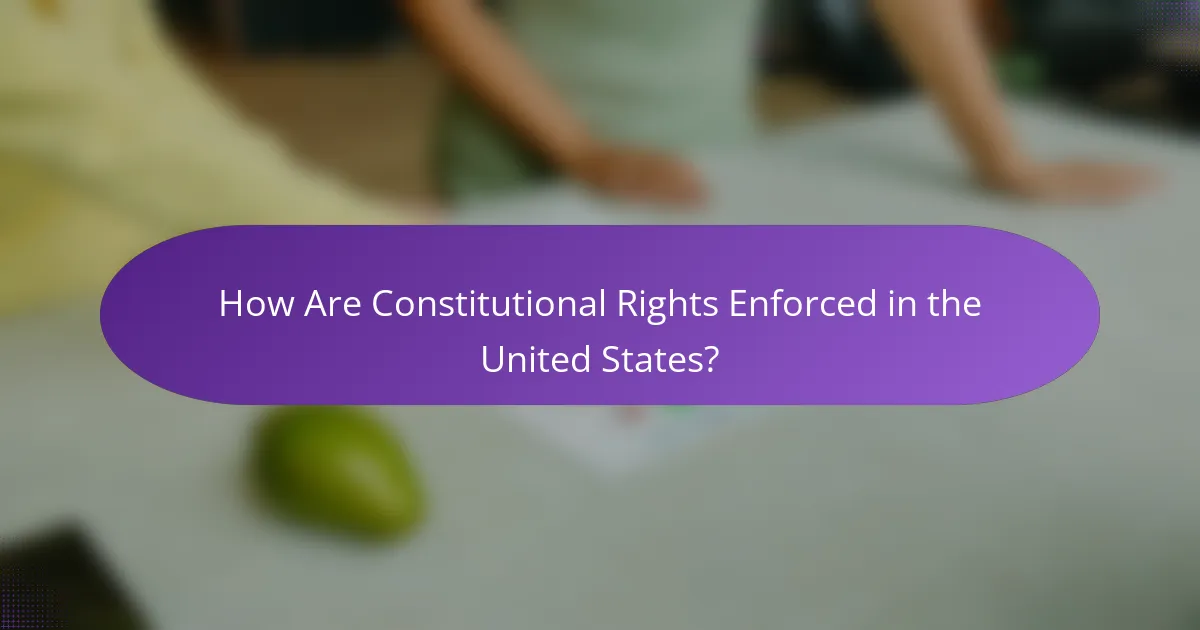
How Are Constitutional Rights Enforced in the United States?
Constitutional rights in the United States are enforced through various mechanisms, primarily involving the judiciary, legislative bodies, and executive agencies. These entities work together to uphold individual rights and ensure compliance with constitutional mandates.
Judicial Review
Judicial review is the process by which courts interpret the Constitution and assess the legality of laws or actions that may infringe upon constitutional rights. This power allows courts to invalidate legislation or executive actions that violate constitutional principles.
For example, landmark cases like Brown v. Board of Education and Roe v. Wade illustrate how judicial review can shape civil rights and personal liberties. Citizens can challenge laws in court, seeking remedies for perceived violations of their constitutional rights.
Legislative Action
Legislative action involves the creation and modification of laws to protect and enforce constitutional rights. Congress and state legislatures can pass laws that expand civil rights protections, such as the Civil Rights Act or the Americans with Disabilities Act.
It’s crucial for citizens to engage with their representatives to advocate for legislation that upholds constitutional rights. Understanding the legislative process can empower individuals to influence change effectively.
Executive Enforcement
Executive enforcement refers to the role of the President and state governors in implementing and upholding laws that protect constitutional rights. This includes directing federal agencies to enforce civil rights laws and ensuring compliance at all levels of government.
For instance, the Department of Justice plays a key role in enforcing federal civil rights laws, investigating violations, and pursuing legal action against offenders. Citizens can report violations to these agencies to initiate enforcement actions.
Public Advocacy
Public advocacy involves individuals and organizations working to promote and protect constitutional rights through awareness campaigns, lobbying, and grassroots movements. Advocacy groups often play a vital role in educating the public and influencing policy decisions.
Engaging in public advocacy can take many forms, from participating in protests to joining organizations that focus on specific rights issues. Collective action can lead to significant changes in public policy and societal norms.
Legal Aid Services
Legal aid services provide essential support to individuals who cannot afford legal representation in cases involving constitutional rights. These organizations help navigate the legal system, ensuring that all citizens have access to justice.
Many legal aid organizations focus on specific populations, such as low-income individuals or marginalized communities. Seeking assistance from these services can be crucial for those facing violations of their rights, as they offer guidance and representation in legal matters.
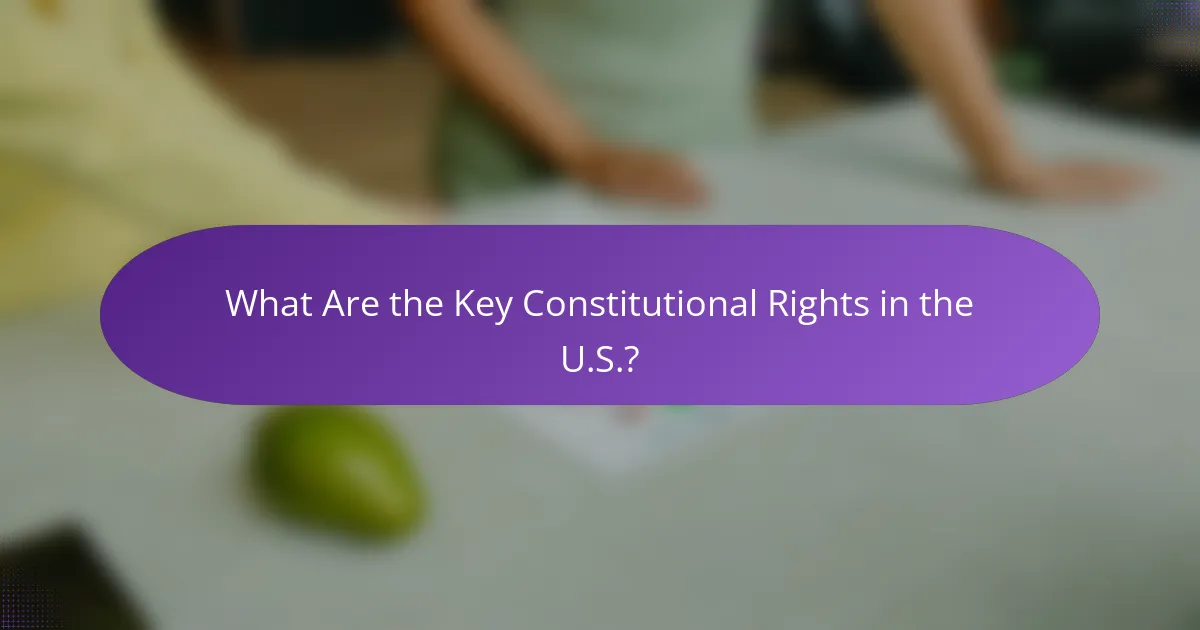
What Are the Key Constitutional Rights in the U.S.?
The key constitutional rights in the U.S. are fundamental protections guaranteed by the Constitution, primarily found in the Bill of Rights. These rights safeguard individual freedoms and ensure fair treatment under the law, forming the foundation of American democracy.
Right to Free Speech
The right to free speech allows individuals to express their thoughts and opinions without government interference. This right is protected under the First Amendment, which covers spoken, written, and symbolic speech.
However, there are limitations, such as restrictions on hate speech, obscenity, and incitement to violence. Understanding these boundaries is crucial for exercising this right responsibly.
Right to Privacy
The right to privacy protects individuals from unwarranted government intrusion into their personal lives. While not explicitly stated in the Constitution, it has been inferred from various amendments, including the Fourth Amendment’s protection against unreasonable searches and seizures.
Privacy rights cover areas such as personal communications, medical records, and family matters. Individuals should be aware of their rights regarding data protection and consent, especially in the digital age.
Right to Due Process
The right to due process ensures that individuals receive fair treatment through the judicial system. This right, enshrined in the Fifth and Fourteenth Amendments, guarantees that legal proceedings will be conducted fairly and that individuals will be given notice and an opportunity to be heard.
Due process applies to both civil and criminal cases, requiring that laws be applied consistently and that individuals are not deprived of life, liberty, or property without appropriate legal procedures.
Right to Bear Arms
The right to bear arms is protected by the Second Amendment, allowing individuals to possess and carry weapons. This right has been the subject of extensive legal debate regarding its scope and limitations.
States may impose regulations such as background checks and permits, but the fundamental right to own firearms remains a contentious issue in American society. Understanding local laws is essential for responsible gun ownership.
Right to Equal Protection
The right to equal protection under the law is guaranteed by the Fourteenth Amendment, prohibiting discrimination by the government against individuals based on race, gender, or other characteristics. This principle ensures that all people are treated equally in legal matters.
Equal protection has been pivotal in civil rights cases, influencing legislation and court rulings. Individuals should recognize their rights and seek legal recourse if they believe they have been discriminated against.
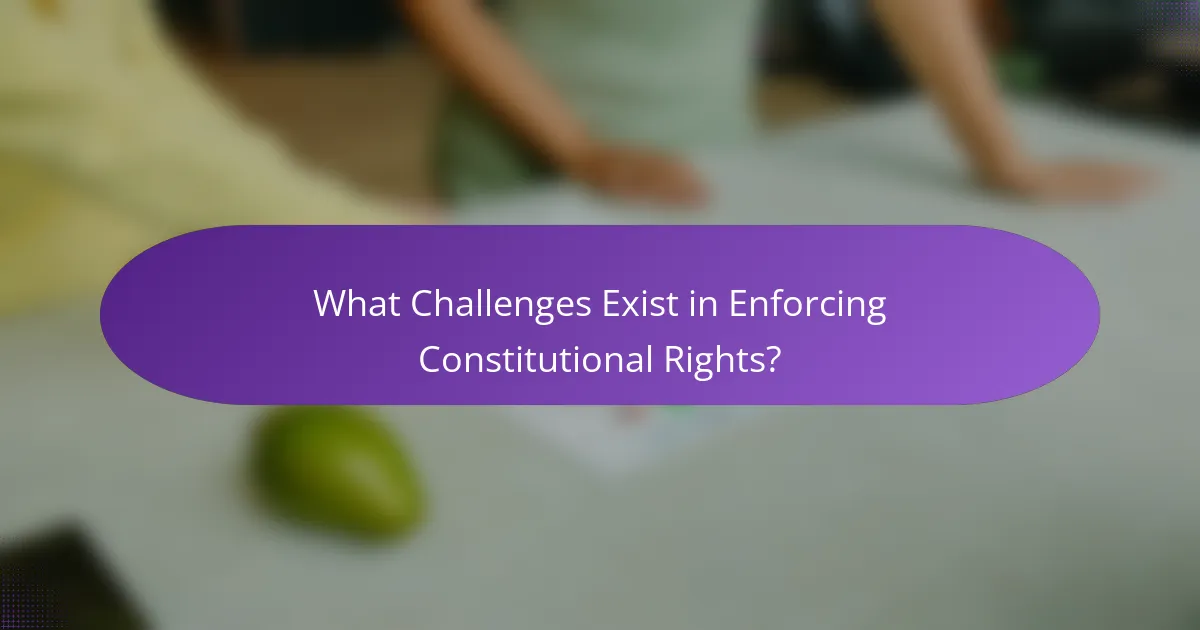
What Challenges Exist in Enforcing Constitutional Rights?
Enforcing constitutional rights faces several significant challenges that can hinder their effectiveness. These challenges include variability in judicial interpretation, political influences, resource limitations, and public awareness, each impacting how rights are upheld and protected.
Judicial Interpretation Variability
Judicial interpretation variability refers to the differences in how courts understand and apply constitutional rights. This can lead to inconsistent rulings, where similar cases may yield different outcomes based on the judges’ perspectives or legal philosophies.
For instance, a right to free speech may be interpreted more broadly in one jurisdiction compared to another. This inconsistency can create confusion and uncertainty for individuals seeking to assert their rights.
Political Influence
Political influence plays a crucial role in the enforcement of constitutional rights, as government officials and lawmakers may prioritize certain rights over others based on their agendas. This can lead to legislation that undermines or restricts rights, particularly in contentious political climates.
For example, laws affecting voting rights can be shaped by the ruling party’s interests, potentially disenfranchising specific groups. Advocacy and awareness are essential to counteract these influences and protect constitutional rights.
Resource Limitations
Resource limitations significantly impact the enforcement of constitutional rights, particularly for individuals who cannot afford legal representation. Many people may lack access to attorneys or legal aid, making it difficult to navigate the judicial system effectively.
Additionally, public agencies responsible for upholding rights may face budget constraints, limiting their ability to investigate violations or provide necessary support. This can create a gap in enforcement, leaving many rights unprotected.
Public Awareness
Public awareness is vital for the enforcement of constitutional rights, as individuals must understand their rights to assert them effectively. A lack of knowledge can lead to underreporting of violations and insufficient advocacy for change.
Educational initiatives and outreach programs can help raise awareness about constitutional rights, empowering citizens to recognize and defend their rights. Community engagement is essential in fostering a culture that values and protects these rights.
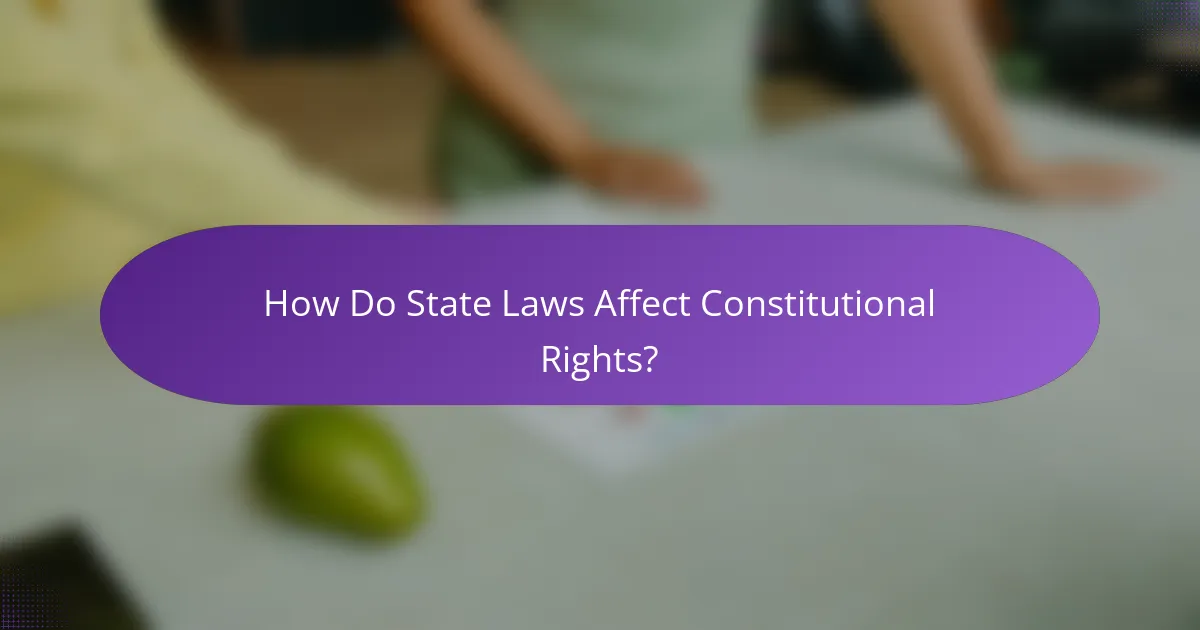
How Do State Laws Affect Constitutional Rights?
State laws can significantly influence the application and enforcement of constitutional rights, often providing additional protections or restrictions. While the U.S. Constitution sets a baseline for rights, individual states have the authority to expand or limit these rights through their own legislation and judicial interpretations.
State Constitutions
Each state has its own constitution, which may include provisions that enhance the rights guaranteed by the U.S. Constitution. For example, some state constitutions explicitly protect rights such as privacy or education, which may not be as clearly defined at the federal level. Understanding the specific rights outlined in a state constitution is crucial for individuals seeking to navigate legal issues within that state.
State constitutions can also provide unique avenues for legal recourse. For instance, if a state constitution offers broader protections against discrimination than federal law, individuals may pursue claims under state law to seek justice and remedies.
Variability in Enforcement
The enforcement of constitutional rights can vary widely from state to state, influenced by local laws, judicial attitudes, and law enforcement practices. For example, some states may have more robust mechanisms for protecting free speech, while others may impose stricter regulations that could limit expression. This variability means that individuals may experience different levels of protection based on their location.
Additionally, the interpretation of constitutional rights can differ among state courts. This can lead to inconsistent rulings on similar cases, making it essential for individuals to be aware of their state’s legal landscape. Engaging with local legal resources or advocacy groups can provide valuable insights into how rights are enforced in a specific state.
